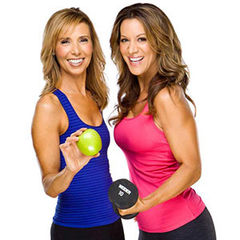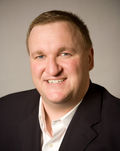“I'm so hungry, I could eat a [fill in the blank]!”
Does this sound like you after a tough workout? How about the rest of the day? Do you find yourself hungry all day long? If you can't seem to satisfy the hunger that follows exercise, you're not alone.
You’re supposed to be hungry after you work out. Exercise burns calories, uses up your glycogen stores and stimulates your appetite.
It also dehydrates you and if you don't drink enough water before, during and after your workout, you're going to feel hungry. Also, improper pre-workout fueling can lead to increased hunger later in the day. Exercising in a fasted state will only make you feel hungrier. In some cases, appetite may be suppressed during or immediately after exercise, but hunger hormones may increase later in the day, making you want to eat more than usual. Satiety hormones can also decrease, making it harder to feel full and satisfied, especially for women.
According to weight-loss experts, exercise works great for weight maintenance. It's also important for reducing your risk of heart disease and diabetes and increasing your level of happiness.
Giving up exercise is not an option—it's part of a healthy lifestyle. Understanding that exercise will increase your appetite and arming yourself with steps to keep it in check is part of the plan for success.
Why are you hungry after working out?
- Exercise increases appetite
- Depleted glycogen stores
- Dehydration
- Inadequate pre-workout fuel
How to Tame Your Hunger
Meal Timing
In the sports nutrition world, meal timing is key to performance and recovery. Because you use up most or all of your glycogen stores while you work out (depending on the type of activity, intensity and duration), you need to replenish them so you can have enough energy to work out tomorrow. It's ideal to eat your first post-workout meal within 30 to 60 minutes of finishing your workout. For some people, this will require some planning. If you exercise first thing in the morning, you'll need to have breakfast food available wherever your morning may take you. If you work out at lunchtime or in the late afternoon, make sure to time it so you can have your lunch or dinner meal as your post-workout fueling. For those who work out in the morning or mid-day, a second post-workout meal approximately two hours later will be necessary. Eating the majority of your calories earlier in the day will help control hunger and cravings later in the day. In the United States, we typically eat a small breakfast and a very large dinner. Reversing that so you have a large breakfast, a medium-sized lunch and a small dinner is more logical in terms of the calories your body needs and when it needs them.
Meal Composition
What you eat is just as important as when you eat. You need carbs and protein in your recovery meal. The ratio of carbs-to-protein depends on the type of workouts you do. An endurance or high-intensity interval training (HIIT) session uses up more glycogen, so you need a greater ratio of carbs-to-protein; ideally, aim for a 3:1 to 4:1 ratio of carbs-to-protein. You want a blend of fast-acting carbs (fruit) and slower-acting carbs (high-fiber whole grains), which will be stored as glycogen. Adding protein to the carbs has been shown to increase the glycogen resynthesis process. For a muscular training, which causes microtears in the muscles, a meal that has a carb-to-protein ratio of 2:1 or 1:1 will help with refueling the muscles and repairing the damaged tissues.
Hydration
If you feel hungry, you might actually be thirsty. Most people don't drink enough water before, during and after exercise. The brain confuses a lack of fluid with not enough food, signaling hunger pains. If you just ate a meal an hour ago and are already feeling hungry, try drinking 12 ounces of water and waiting 15 minutes; then reassess your hunger level. A great plan for staying properly hydrated includes drinking 8 to 12 ounces of water when you wake up, 8 ounces before each meal, 12 to 16 ounces an hour before you exercise, and 24 ounces after you exercise. By the end of the day, you should have consumed 2 to 3 liters of water. Other factors to consider that drive up your fluid needs include heat, humidity, illness and pregnancy.
Thirst is a poor indicator of hydration status—if you wait until you are thirsty to drink then you are most likely already 1-2%dehydrated, which is significant. Instead, look to the color of your urine to assess your level of hydration. If it is clear to light yellow, then you're hydrated. If it's anything darker than the color of lemonade, be sure to start drinking more water.
Pre-workout Fuel
Whether or not you eat before your workout can impact your hunger later in the day. For morning exercisers, make sure to eat something before your workout. If you have less than 30 minutes between the time you wake up and hit the gym, a banana with a little peanut butter is a good choice. If you have at least an hour before your workout, a bowl of oatmeal with some fruit and nuts, or some eggs and fruit will give you the fuel you need to power through a tough session. Exercising in a fasted state may lead to early fatigue, poor stamina and increased hunger post-workout.
Mindful Eating
Most of us have very busy lives and tend to eat quickly while doing something else. However, when you eat mindfully—slowly and undistracted by the TV, emails, Internet or smartphone—and focus attention on your body’s hunger and fullness cues, you may derive more satisfaction from your meals and feel less hungry throughout the day.




 by
by 









 by
by